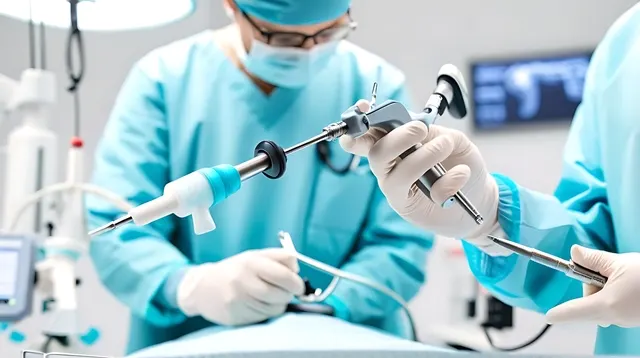When we think about regular health check-ups, we often focus on routine blood tests, dental visits, or physical exams. But one area that’s often overlooked — yet critically important — is ENT health. ENT stands for Ear, Nose, and Throat, and this specialty plays a crucial role in maintaining vital functions such as breathing, hearing, speech, and balance.
ENT issues can affect people of all ages and may often go undiagnosed until they become severe. Regular ENT check-ups can help in early detection, timely treatment, and prevention of chronic conditions.
In this blog, we explore why regular ENT consultations should be part of your preventive healthcare routine and the benefits they offer for long-term wellness.
What Does an ENT Specialist Do?
An ENT specialist, or otolaryngologist, is trained to diagnose and treat conditions related to:
- Ear health (hearing loss, infections, tinnitus, balance disorders)
- Nose and sinus issues (allergies, sinusitis, nasal obstruction)
- Throat and voice problems (hoarseness, tonsillitis, swallowing issues)
- Head and neck (thyroid problems, salivary glands, tumours)
- Sleep-related disorders (snoring, sleep apnoea)
ENT doctors work with both children and adults to address a wide range of acute and chronic conditions.
Why Are Regular ENT Check-Ups Important?
1. Early Detection of Silent Problems
Many ENT disorders don’t show obvious symptoms in the early stages. For example:
- Hearing loss can develop gradually, and many people don’t notice it until it significantly impacts communication.
- Chronic sinusitis or nasal polyps might present as minor congestion but can affect breathing and sleep over time.
- Throat or voice changes could signal early warning signs of infections or growths.
Regular check-ups can help detect these conditions before they become advanced, reducing the need for complex treatments later.
2. Preventing Complications from Common Conditions
Untreated ENT issues can lead to more serious complications:
- Recurrent ear infections in children can result in speech delays or hearing loss.
- Chronic throat infections can affect the voice box and vocal cords.
- Prolonged nasal allergies can evolve into sinus infections or asthma.
Routine visits help monitor these conditions and prevent long-term damage through timely intervention.
3. Hearing Health and Balance Assessment
As we age, hearing loss becomes more common. Regular ENT check-ups, especially after the age of 40, allow for:
- Audiometric tests to evaluate hearing
- Assessment for age-related hearing loss (presbycusis)
- Recommendations for hearing aids or medical treatments
- Evaluation of balance issues caused by inner ear disorders
Hearing loss, if left unaddressed, can also contribute to cognitive decline and social withdrawal.
4. Allergy and Sinus Management
If you suffer from chronic nasal congestion, sneezing, or sinus pressure, an ENT specialist can help identify:
- Allergic triggers (dust, pollen, mould, etc.)
- Structural issues like deviated septum or nasal polyps
- Chronic infections that might require advanced treatment
Rather than relying on over-the-counter medications, ENT doctors provide targeted treatments including allergy testing, immunotherapy, and sinus surgery when necessary.
5. Sleep and Breathing Disorders
ENT doctors often evaluate and manage snoring, sleep apnoea, and airway obstruction, which can seriously impact quality of life.
- Sleep apnoea, if untreated, can increase the risk of hypertension, heart disease, and daytime fatigue.
- Children with enlarged adenoids or tonsils may suffer from sleep disturbances or growth delays.
Regular ENT evaluations help determine if interventions such as CPAP therapy, nasal surgery, or tonsillectomy are needed.
6. Voice and Swallowing Health
If your job involves heavy voice use (teachers, singers, speakers), routine throat examinations are essential to prevent:
- Vocal cord nodules or polyps
- Chronic laryngitis
- Hoarseness due to acid reflux or infection
An ENT specialist can recommend voice therapy, medication, or procedures to protect your vocal health.
7. Cancer Screening and Head-Neck Health
ENT specialists are often the first to detect head and neck cancers, including those affecting the throat, thyroid, tongue, or salivary glands.
Routine check-ups can help in:
- Identifying unusual lumps, ulcers, or voice changes
- Screening for thyroid nodules or glandular swelling
- Advising on further investigation with biopsies or imaging tests
Early diagnosis is critical for successful treatment of head and neck cancers.
Who Should Get Regular ENT Check-Ups?
- Children with frequent ear infections or nasal allergies
- Adults with voice strain, hearing issues, or sleep problems
- Seniors experiencing age-related hearing loss or dizziness
- Professionals in teaching, music, aviation, or public speaking
- Anyone with chronic nasal congestion, throat irritation, or snoring
Even if you feel healthy, an annual ENT check-up can provide peace of mind and early preventive care.
What to Expect During an ENT Check-Up
A routine ENT consultation may include:
- Visual examination of ears, nose, and throat
- Hearing tests (audiometry)
- Nasal endoscopy or laryngoscopy if required
- Allergy testing
- Neck or gland evaluation
The entire process is usually painless and non-invasive, and helps in forming a clear diagnosis
Conclusion
ENT health is closely linked to your breathing, hearing, speaking, and overall comfort in daily life. Minor symptoms like persistent sneezing, ear discomfort, or a hoarse voice should not be ignored. Regular ENT check-ups allow for early detection, better management, and improved quality of life.
Whether you’re experiencing discomfort or simply want to stay proactive about your health, visiting an ENT specialist should be part of your routine healthcare plan.




